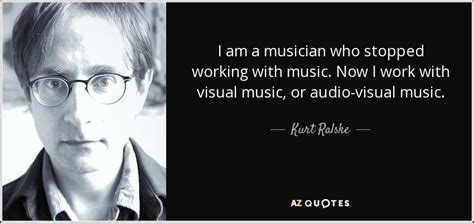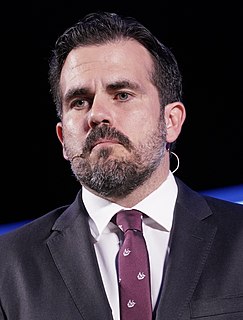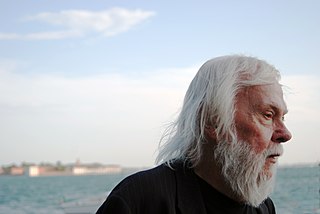Top 590 Rhetorical Strategies Quotes & Sayings - Page 10
Explore popular Rhetorical Strategies quotes.
Last updated on April 20, 2025.
The dynamic is unmistakable: fixed lines for phones have been declining at a three-percent rate for the last several years, while the number of Americans opting for cell phone calling keeps increasing. If you are a fixed line provider this trend means trouble. Many of the fixed mobile convergence strategies under consideration end up utilizing a smart phone or dual-mode VoWLAN/Cellular phone that works like a landline phone in the local area and then converts to cell phone calling.
I try to express with the camera what the story is, to get to the heart of the story with picture. In battle I look at things first in terms of people, second in terms of strategies or casualties... To tell a story, you don't photograph one hundred dead civilians to prove there were one hundred dead civilians. You photograph one dead civilian with an expression on his face that says, This is what it's like if you're a dead civilian in Vietnam.
This years keynote session is a clear reminder that wireless data technology is expanding its reach beyond that of an alternative to wireline telephony. We have gathered an exclusive group of business leaders to share how wireless is being integrated into their companys business strategies and what it means for their bottom lines. The presence of these telecom, media and entertainment giants on our center stage is a great indicator of the impact wireless data has made on countless industries.
Eric Schlosser's book on the economy and strategies of the fast-food business should be read by anyone who likes to take their children to fast-food restaurants. I shall certainly never do that again. He employs a long, cold burn, a quiet and impassioned accumulation of detail, with calm, wit and clarity. (...) Fast Food Nation is witness to the rigour and seriousness of the best American journalism, readable, reliable and extremely carefully done.
The Grid makes the history of architecture and all previous lessons of urbanism irrelevant. It forces Manhattan's builders to develop a new system of formal values, to invent strategies for the distinction of one block from another. The Grid's two-dimensional discipline also creates undreamt-of freedom for three-dimensional anarchy. The Grid defines a new balance between control and de-control in which the city can be at the same time ordered and fluid, a metropolis of rigid chaos.
Successful leaders develop effective strategies for maintaining their boundaries. ... Most time bandits don't know any better. And being a time bandit is a matter of context. One person's time bandit is another person's pleasant diversion. ... Instead of gritting our teeth to be polite and resenting the time bandit for holding us up, the best choice is to be honest. We cannot expect another person to honor our needs unless we affirm them ourselves.
From Iraq to Guantanamo Bay, international standards and the framework of international law are being given less when they should be given more importance. I am pleased that the courts in the United States are beginning to review what has happened to those detained in Guantanamo Bay. Similarly in Iraq we need to bring our strategies back within the framework of international norms and law.
The rapt pupil will be forgiven for assuming the Tsar of Death to be wicked and the Tsar of Life to be virtuous. Let the truth be told: There is no virtue anywhere. Life is sly and unscrupulous, a blackguard, wolfish, severe. In service to itself, it will commit any offense. So, too, is Death possessed of infinite strategies and a gaunt nature- but also mercy, also grace and tenderness. In his own country, Death can be kind.
If we were left to ourselves with the task of taking the gospel to the world, we would immediately begin planning innovative strategies and plotting elaborate schemes. We would organize conventions, develop programs, and create foundations… But Jesus is so different from us. With the task of taking the gospel to the world, he wandered through the streets and byways…All He wanted was a few men who would think as He did, love as He did, see as He did, teach as He did and serve as He did. All He needed was to revolutionize the hearts of a few, and they would impact the world.
When other people first became aware of the cow, they expressed concern and anxiety. They suggested strategies for getting the animal out of Molly's parlor: remedies and doctors and procedures, some mainstream and some New Age. They related anecdotes of friends who had removed their own cows in one way or another. But after a while they had exhausted their suggestions. Then they usually began to pretend that the cow wasn't there, and they preferred for Molly to go along with the pretense.
Let me name three of the people who influenced me, although it's definitely not a complete list. Ayesha Jalal, the formidable Pakistani-American historian, has rigorously re-evaluated Jinnah's political strategies leading up to Partition. Akbar Ahmed, a former diplomat and now a distinguished scholar, has documented Jinnah's life as a man who welcomed, worked with, and even married people of other faiths. And then there is Ardeshir Cowasjee, the great Parsi newspaper columnist, who in his mid-80s is a kind of living history of all of Pakistan, old enough to have known Jinnah himself.
[Kenneth Koch] taught children in public schools in New York City to write poems and told them down worry about rhyming, don't worry about any of that stuff. You know, write a poem where you mention three colors and make it five lines - or he would just give them, you know, little strategies. And, man, they wrote some great poems.
The best solution would be better strategies for more rapid economic growth and getting people jobs and increases in income. You should simply be clear about matching problems and solutions. If the problem is someone can't find a job because they don't have the skills and they need some retraining, extending emergency unemployment isn't going to solve that. You need the job training programs or the skills bills that come out of the House and are sitting in the Senate.
I will not call myself a pacifist for the very simple reason that if something like a [Francisco] Franco should arise in Spain again, or, for that matter, in America, and tried to take away whatever dwindling civil liberties and human rights we retain, I would resist them with a club if I had to. But my admiration for pacifism as an outlook and a sensibility is enormous. I just find that it gets me into contradictions, as it often gets many pacifists into contradictory positions and strategies.
If I try to use human influence strategies and tactics of how to get other people to do what I want, to work better, to be more motivated, to like me and each other-while my character is fundamentally flawed, marked by duplicity and insincerity-then, in the long run, I cannot be successful. My duplicity will breed distrust, and everything I do-even using so-called good human relations techniques-will be perceived as manipulative.
One of the most effective strategies to make your child more self-control is the weekly giving of allowance or pocket money as an opportunity for parents to teach self-control and model self-control. So rather than just handing the child the money and leaving it at that, the parent hands them a modest amount that has to be managed through the week, sits with the child and takes the time to anticipate what's going to be coming up next week, what the child would like to do and helps them to make choices and understand the limited amount of money they have.
Like looking down on a lubricious chess set, isn't it? The king moves in tiny steps, with no direction, like a drunkard trying to avoid the archer's bolt. The others work their strategies and wait for the old man to fall. He has no power, yet all power moves in his orbit and to his mad whim. Do you know there's no fool piece on the chessboard, Kent?" "Methinks the fool is the player, the mind above the moves.
Some who support [more] coercive strategies assume that children will run wild if they are not controlled. However, the children for whom this is true typically turn out to be those accustomed to being controlled— those who are not trusted, given explanations, encouraged to think for themselves, helped to develop and internalize good values, and so on. Control breeds the need for more control, which is used to justify the use of control.
It's really important to have life strategies and part of that is sort of knowing where you want to go so you can have a map that helps you to get there. And the traditional way tells us oh we get into school and someone else advises us, helps us, but that often does not work for African Americans female and male. Because what works for the dominant culture often does not work for us.
Rather than going after our walls and barriers with a sledgehammer, we pay attention to them. With gentleness and honesty, we move closer to those walls. We touch them and smell them and get to know them well. We begin a process of acknowledging our aversions and our cravings. We become familiar with the strategies and beliefs we use to build the walls: What are the stories I tell myself? What repels me and what attracts me? We start to get curious about what’s going on.
Easterly, a celebrated economist, presents one side in what has become an ongoing debate with fellow star-economist Jeffrey Sachs about the role of international aid in global poverty. Easterly argues that existing aid strategies have not and will not reduce poverty, because they don't seriously take into account feedback from those who need the aid and because they perpetuate western colonial tendencies.
Most of the experts agree that strategy will have to become more "adaptive", meaning that strategies will change faster based on information from people on the corporation's front lines - dealing with customers, fending off competitors. This won't represent a new revolution, but rather the continued speeding up of the one that's been going on. Everything will move faster, and competitive advantage disappear more quickly than ever.
Even on just the career level for your average officer, there's no incentive to end the wars. There's not even an incentive for these think-tank guys to end the wars. They would never admit it and say, "Oh, how could we at the Center for a New American Security not want the wars to end?" Well then, why the hell are you continuing to promote strategies that will keep us fighting for years?
Dakota tribal wisdom says that when you're on a dead horse, the best strategy is to dismount. Of course, there are other strategies. You can change riders. You can get a committee to study the dead horse. You can benchmark how other companies ride dead horses. You can declare that it's cheaper to feed a dead horse. You can harness several dead horses together. But after you've tried all these things, you're still going to have to dismount.
There is, perhaps, one universal truth about all forms of human cognition: the ability to deal with knowledge is hugely exceeded by the potential knowledge contained in man's environment. To cope with this diversity, man's perception, his memory, and his thought processes early become governed by strategies for protecting his limited capacities from the confusion of overloading. We tend to perceive things schematically, for example, rather than in detail, or we represent a class of diverse things by some sort of averaged "typical instance.
Value investing strategies have worked for years and everyone's known about them. They continue to work because it's hard for people to do, for two main reasons. First, the companies that show up on the screens can be scary and not doing so well, so people find them difficult to buy. Second, there can be one-, two- or three-year periods when a strategy like this doesn't work. Most people aren't capable of sticking it out through that.
I was a musician who began playing with computers, to see if they could make some tasks simpler. I developed some "tricks" or strategies for working with audio files, and then discovered that the same tricks could be applied to video files, or really, any type of data. Previously I made many different kinds of music. I did some work as a composer of film scores. In that role, my task was to create audio to match and deepen the visual. In my work now, the role is often reversed: I have to create images to match and deepen the audio.
The most constructive solutions are those which take into consideration the views of all persons involved and are acceptable to all. Such outcomes are the result of negotiation strategies where the needs of both sides are considered important and an attempt is made to meet all needs. These solutions are appropriately called Win-Win because there are no losers. While often difficult to arrive at, the process leading to such solutions builds interpersonal relationships, increases motivation and improves commitment. Win-Win solutions are the most desirable outcomes of conflict resolution.
There are diverse ways in which - right now, terror and all that goes with it is a prime concern. It's a concern of the United States. It's a concern of India. Joint strategies, cooperation, joint sharing of intelligence, in controlling terrorism, in making the world free from terror. I think that's the fundamental, I think, consideration if our development aspirations are to be fulfilled. And I think our two countries can cooperate.
The approach and strategies are very similar in that you gather all the information you can and then keep adding to that base of information as things develop. You do whatever the probabilities indicated based on the knowledge that you have at that time, but you are always willing to modify your behaviour or your approach as you get new information. In bridge, you behave in a way that gets the best from your partner. And in business, you behave in the way that gets the best from your managers and your employees.
The United States is strongly committed to the IPCC process of international cooperation on global climate change. We consider it vital that the community of nations be drawn together in an orderly, disciplined, rational way to review the history of our global environment, to assess the potential for future climate change, and to develop effective programs. The state of the science, the social and economic impacts, and the appropriate strategies all are crucial components to a global resolution. The stakes here are very high; the consequences, very significant.
Creating a high-functioning education system requires all the strategies involved in building high-functioning organisations anywhere. It requires a deliberate and aggressive strategy to ensure extraordinary talent at every level of the system, from the superintendentcy to district offices to principalships to classrooms. It requires building systems for accountability; offering parents the ability to choose their public schools is the ultimate form of this. It requires building a strong culture at the system and school levels based on high expectations for student achievement.
For the last 250 years or so, secularists have waited patiently for the fulfilment of their prediction that religion would die out in the next generation or two. But religious people have been singularly uncooperative, and new strategies have developed for controlling this blight on human progress. If religion won't "wither away" as philosopher Richard Rorty has wished, then perhaps it can be privatized and thereby removed from influence on public life‚ - sort of like localizing an outbreak of the plague.
Expression is never considered a given, and it is in fact maybe not what's most interesting about making art. Making art, since 1960 or something, is many things: it's a way of doing philosophy, it's a way of opening a dialogue, it's a way of putting a fact or a question out into the world, or a way of drawing people into new relationships, or a way of interrogating history. It's all these other sorts of strategies or techniques or processes that are really interesting and really valuable.
After decades of faithful study, ecologists have begun to fathom hidden likenesses among many interwoven systems. ...a canon of nature's laws, strategies, and principles...
Nature runs on sunlight.
Nature uses only the energy it needs.
Nature fits form to function.
Nature recycles everything.
Nature rewards cooperation.
Nature banks on diversity.
Nature demands local expertise.
Nature curbs excesses from within.
Nature taps the power of limits.
As long as we place millions of Indians at the canter of our thought process, as long as we think of their welfare, their future, their opportunities for self realization we are on the right track. For India can grow, prosper, flourish only if they grow, prosper, flourish. We cannot grow by any esoteric strategies. Our purchasing power, our economic strength, our marketplace all depends on the prosperity of our people.
Every political race I've started, I've entered as an underdog and a long shot. This is certainly no exception. But I happen to be the best person for this job. Democrats need someone who can win. And there are two strategies for winning: You can energize the base, which is the strategy the party has used in the last couple of elections...unfortunately without success.Or you can energize and expand the base and bring the campaign to states where we've not had much success particularly in the heartland.
The single most damaging misconception about strategy is that it is a set of financial performance goals. The so-called "strategies" created by many managements are nothing more than three-to-five year financial performance forecasts. They are then labeled "strategy" and shipped off to the board of directors which goes through the motions of discussing how big the numbers are. Strategy is not your aspirations. Strategy is concerned with how you will arrange your actions and resources to punch through the challenges you face.
Publishing a book is a great thing, and I'm grateful, but it's also a horrible, exposing thing. Once you've published a book, you never write quite as freely again. You're aware, from that point onward, of the kinds of things critics might say about it. You're aware of the kinds of things your publishers might like and dislike about it. You're half-aware of marketing strategies - of all the stuff around the book. Whereas with your very first piece of fiction, if you're lucky, those things barely occur to you at all.
The full implications of feminism will evolve over time, as we organize, experiment, think, analyze, and revise our ideas and strategies in light of our experiences. No theory emerges in full detail overnight; the dominant theories of our day have expanded and changed over many decades. That it will take time should not discourage us. That we might fail to pursue our ideas - given the enormous need for them in society today - is unconscionable.
Fair Trade is a market-based, entrepreneurial response to business as usual: it helps third-word farmers developing direct market access as well as the organizational and management capacity to add value to their products and take them directly to the global market. Direct trade, a fair price, access to capital and local capacity-building, which are the core strategies of this model, have been successfully building farmers' incomes and self-reliance for more than 50 years.
We're trying our best to develop sort of strategies. We have already turned into law a labor reform law that will allow for more opportunities to ensue. We have also established a permits law that will facilitate permits in Puerto Rico. We are about to roll out a comprehensive tax reform that will enhance the base and will reduce the rates in Puerto Rico.
What I try to do is reinvigorate strategies and clichés I find in Hollywood movies. At a certain point I had these huge folders, each one classified according to subject matter or genre: people with guns, people kissing, Indians and cowboys falling off horses, getting shot, getting shot with arrows - almost every plot device. Then I cropped the cheap, recycled imagery to give exhausted images new meaning, or at least something other than their original meaning. I'm basically reassembling atoms to give them a meaning that's more au courant.
Most organizations only focus on WHAT they do and HOW they do it - tactics and strategies - and they aren't even aware that this thing called the WHY exists. Focusing on only two pieces of a three piece puzzle leaves an organization, or a career, inherently out of balance. Being out of balance, only operating on two of the three pieces, shows up in different ways - increased stress, loss of passion, obsession with what your competition is doing, being forced to play the price game, trouble differentiating. These are all signs that the WHY is missing.
If we all make systematic mistakes in our decisions, then why not develop new strategies, tools, and methods to help us make better decisions and improve our overall well-being? That's exactly the meaning of free lunches- the idea that there are tools, methods, and policies that can help all of us make better decisions and as a consequence achieve what we desire-pg. 241
Today the strategies of many companies in the real estate industry are premised on low interest rates, an assumption that has resulted in the rapid expansion of the real estate securitization business. This trend could be regarded as a risk factor, as it exposes the real estate sector to at least three potential problems: first, interest rate hikes; second, revisions to securitization business accounting standards; and third, overheating in the real estate market.
One has to be very alert to go beyond lust. And one has to be constantly aware of jealousy, of possessiveness, of domination, because those are the strategies of lust. If you drop jealousy, possessiveness, ego trips, then slowly slowly lust disappears and love arises. Love is a pure flame without any smoke. It is prayer, it is divine, and it makes you divine.
Traditional religions practices are important.They allow us to share with others the communal experience of adoration and prayer,but we must never forget spiritual experience is above all a practical experience of love,and with love,there are no rules some may try to control their emotions and develop strategies for their behavior,others may turn to reading books of advice from "experts" on relationships but this is all folly.The heart decides and what it decides is all that really matters.
One of the problems many leaders report is a gap between strategy and execution. Usually this "gap" arises because the so-called "strategy" is a set of financial performance goals, not an approach to overcoming challenges. The two key ways to narrow this gap are to avoid bad strategies that fail to explain how to proceed and to establish a proximate objective - something which can be accomplished and which will open the door to further progress.
Baker has done it again! Building on the core principles that he advanced in Professional's Guide to Value Pricing and The Firm of the Future, Ron Baker has again evolved thought leadership on the critical dynamics of value and pricing. Baker's latest work, Pricing on Purpose: Creating and Capturing Value, provides real-world examples and practical strategies that provide a framework for pricing optimization. His clarity of purpose and passionate call to action resonates in today's intellectual capital economy.















































